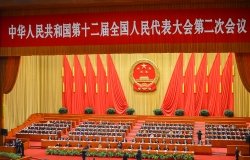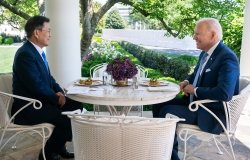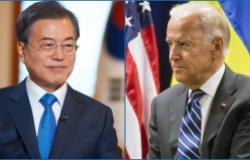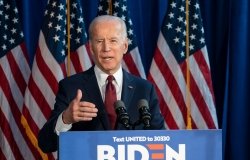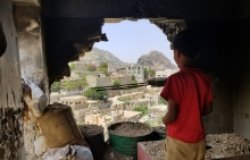The Normality of Insecurity

The world changes when people accustom themselves to the unacceptable, when they see as natural what is not, such as insecurity. Instead of protesting, exacting, and demanding the construction of a security system that attends to the needs and interests of the citizenry, we Mexicans are becoming accustomed to living under the yoke of organized crime in its diverse variants. The government, in fact, the various governments of recent decades, have been incapable of providing a solution and have ended up as defeated and accommodating as everyone else. Instead of effective leadership, Mexicans have had Defeatists-in-Chief. The promise to negotiate with narcos and grant amnesty to criminals is another facet of the same thing: more of the same, or worse.
People adjust and adapt to the environment, a characteristic inherent to the human race. In terms of security, that feature constitutes an enormous danger because it implies that the outcry for a regime of security that satisfies the population and makes possible an integral transformation is in danger of disappearing.
The phenomenon is ubiquitous. The informal economy exemplifies the price of our becoming accustomed to what should not be: rather than progressing and prospering, those existing in the informal sector wind up entrapped within it and, although they can generate an income, they constitute clienteles that comprise an incentive for politicians to preserve an order (i.e., disorder) from which there is no way out. The same is true of corruption, which can appease an immediate need (such as complying with a paperwork requirement), but it is accompanied by the consequence that those processes are never eliminated or streamlined. Private police, increasingly higher walls and barbed wires are nothing other than subterfuges that take the pressure off of those who should solve the problem and promote a peaceful coexistence.
To the extent that the citizenry distances itself from the world of rules and, in general, from the law, governmental institutions stop being relevant, intensifying the crisis of confidence and credibility that stalks Mexicans. The attractiveness that AMLO represents for many prospective voters does not lie in original and positive ideas that, incidentally, the candidate does not possess, but precisely in the contrary: since none of that works, let us better be embedded in the “traditional practices” (usos y costumbres) that hamper the resolution of the real problems. When one crosses that threshold, it dilutes the viability of the construction of a democratic system of checks and balances, political systems are discredited and, as Max Weber would say, the criminal element is in the last analysis the State because it is the one that flaunts the monopoly on force. Phenomena such as those of strange party alliances, party switchers without principles and trust based on beliefs rather than on institutions are obvious manifestations of the deterioration that Mexicans have experienced.
The proposals of recent candidates and governors remit to existing laws and regulations (one favorite is the Single Command) as well as institutions, as portrayed by the judicial and police reform. All of these are legitimate endeavors but, as depicted by Colombia, perhaps the most successful example of transformation in this matter, none of that alters the reality until the government assumes its role as guarantor of citizen security and is willing to transform the institutional reality that lies, at the end of the day, behind the chaos of illegality and the reigning insecurity. In Colombia, a series of successive governments transformed the country because they recognized that the problem were not the criminals but the lack of State, therefore the only way of going forward consisted of constructing, in point of fact, a new State, with all that that implies.*
Merely reforming existing institutions in a general ambience of illegality, informality, impunity and corruption accomplishes no more than hampering true, long lasting solutions. A transcending reform –that of the police, the judiciary, etc.- will only be successful to the degree that it is inscribed within a context of a general transformation of the political regime. In contrast with extreme proposals –granting amnesty to all or ruling with an iron fist- Colombia showed that there are no intermediate pathways: the government must transform itself in its entirety or all of the efforts made will return to the same place. The avatars of the federal police during these years illustrate this phenomenon in neat fashion.
Mexico is living through critical and transcendental times. Insecurity grows and feeds off governmental inaction and the absence of policies leading to resolve it. It pretends to preserve what works –as illustrated by the epic negotiation of NAFTA- but does not propose an integral solution to the problem of insecurity that, inexorably, reduces the potential of investment in the country, while it does not address the effect on the citizenry. The risk of ending up in a “new normality” of permanent insecurity is not small and, judging by the proposals concerning amnesty, ending up a Narco State is immense.
In speaking of native cleverness, Jorge Luis Borges criticized that spirit of flouted legality or accommodated illegality that characterizes our culture. Being smart-witted, said the Argentinian writer, does not imply ceasing to be ignorant. Circumventing real and urgent solutions is.
*See: A security strategy to protect the citizenship in Comexi.org
The views expressed here are solely those of the author.
About the Author

Luis Rubio
Mexico Institute Advisory Board Member; Chairman, México Evalúa; Former President, Consejo Mexicano de Asuntos Internacionales (COMEXI); Chairman, Center for Research for Development (CIDAC), Mexico

Mexico Institute
The Mexico Institute seeks to improve understanding, communication, and cooperation between Mexico and the United States by promoting original research, encouraging public discussion, and proposing policy options for enhancing the bilateral relationship. A binational Advisory Board, chaired by Luis Téllez and Earl Anthony Wayne, oversees the work of the Mexico Institute. Read more


